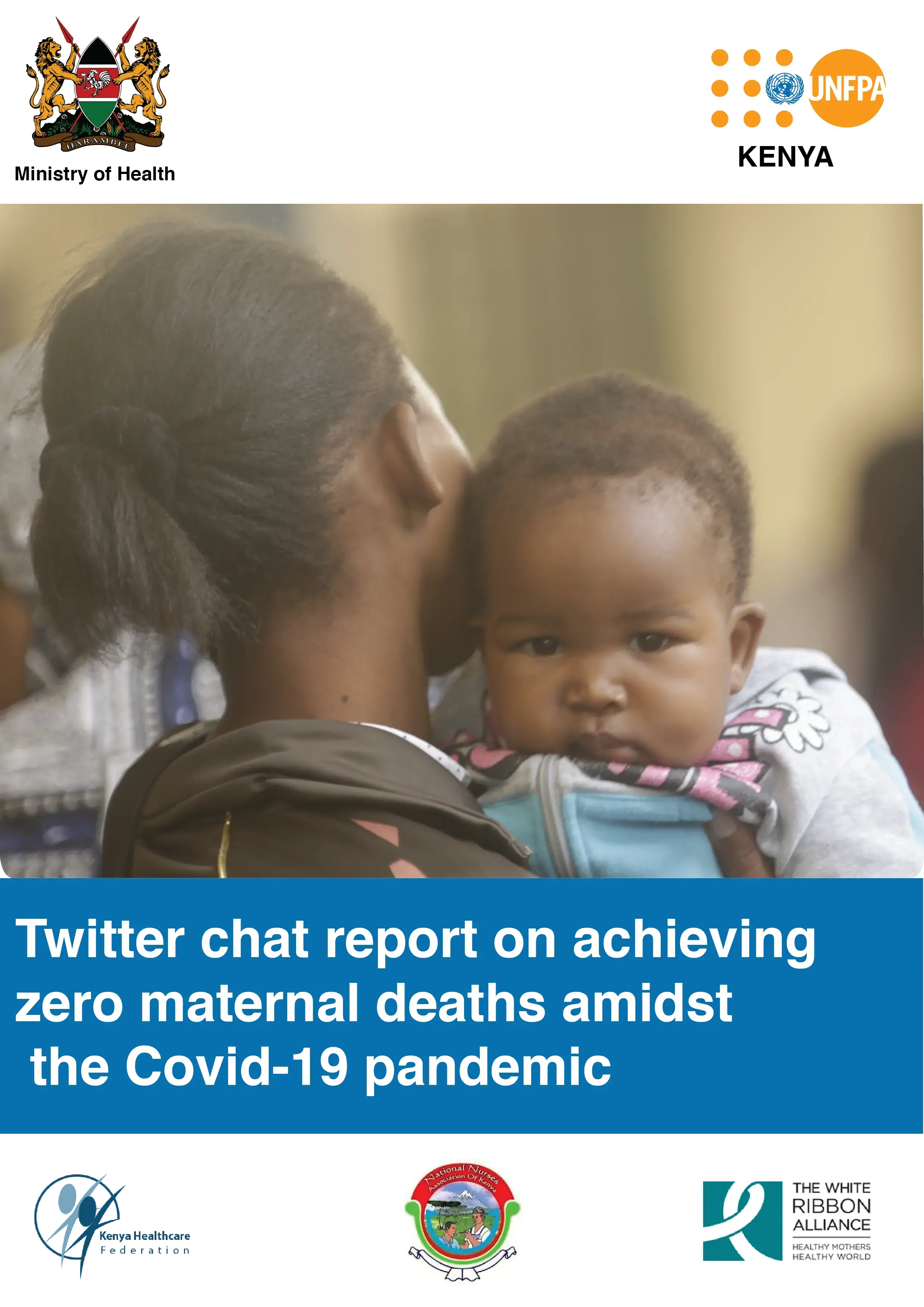UNFPA team meets with business tycoon and philanthropist Dr. Manilal Premchand Chandaria to discuss innovative ways of advancing maternal and newborn health in Kenya.
Kenya's leading business tycoon and philanthropist, Dr. Manilal Premchand Chandaria, popularly known as Manu Chandaria, has commended UNFPA for its mission to safeguard the lives of pregnant women by supporting initiatives that aim at reducing maternal deaths.
Dr. Chandaria is the Chairman and CEO of the Comcraft Group of Companies, a billion dollar enterprise that has a presence in over 40 countries worldwide. He has won several international and regional awards in recognition of his entrepreneurial and philanthropic endeavors, including the Order of the British Empire (OBE) by Queen Elizabeth II, and the Elder of the Burning Spear by President Mwai Kibaki.
Dr. Chandaria, who is also the chairman of the Chandaria Foundation, expressed his admiration for UNFPA's mandate during a meeting that was attended by Mr. Heimo Laakkonen, the Chief of the UNFPA HQ Resource Mobilization Branch, and Dr Benjamin O. Alli, the UNFPA Kenya Representative (a.i.).
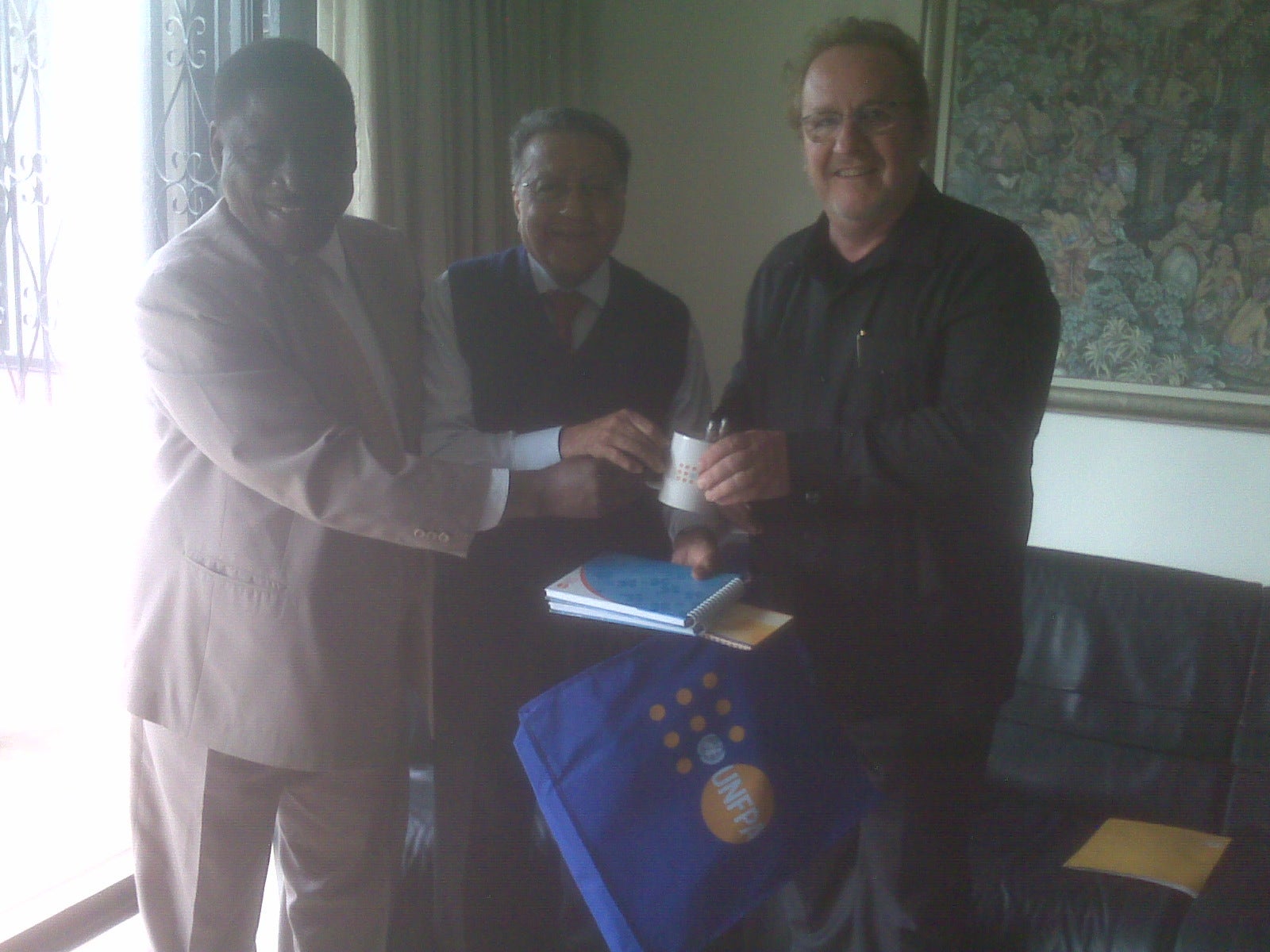
The three senior heads discussed possible innovative partnerships to advance maternal and newborn health in Kenya. One such innovation is the introduction of mobile ambulance and immunization clinic units that would meet the challenge of providing primary care to isolated women and their families. The units are designed to reach areas that may be inaccessible to all but four-wheel drive vehicles, but at a fraction of the cost.
The mobile ambulance and immunization clinic units, which are designed by e-Ranger, are based on a successful and durable ambulance platform. They have been specifically designed to cater to rural populations, especially those in remote areas that suffer from poor infrastructure and access to health centers.
The self-contained mobile clinics can transport two healthcare workers into the field and be set up at a point of use in a few minutes. The unit can be used to provide immunization, post-natal checks and drug distribution among others services.
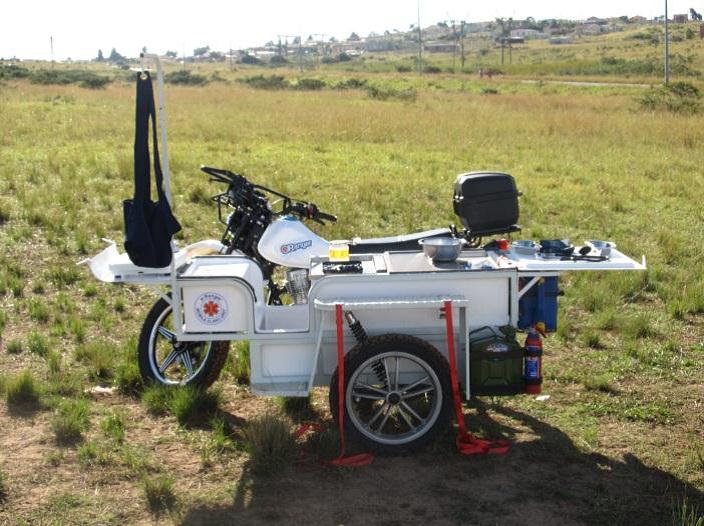
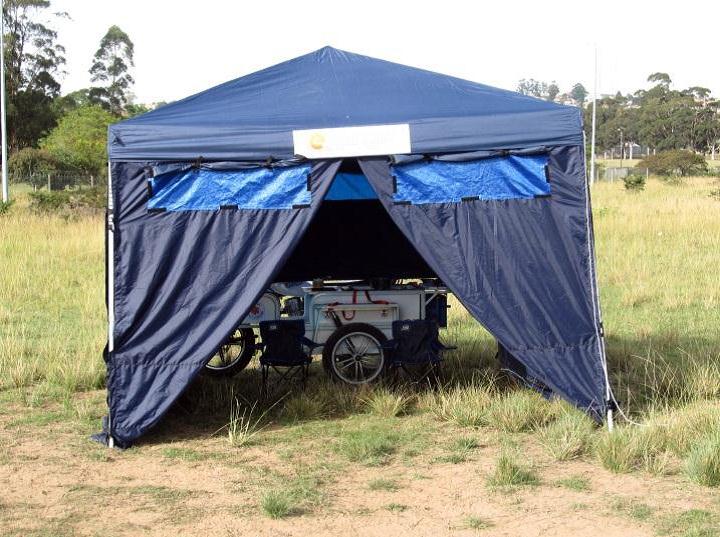
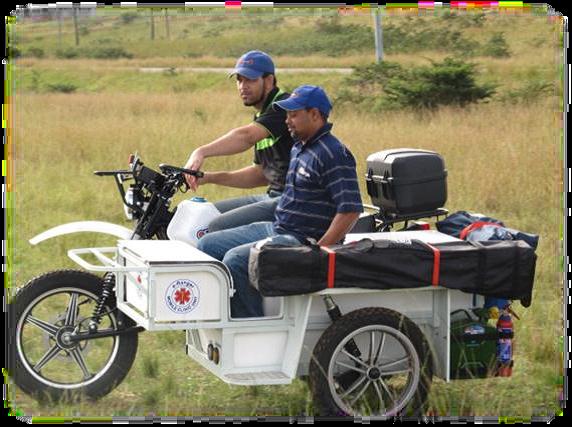
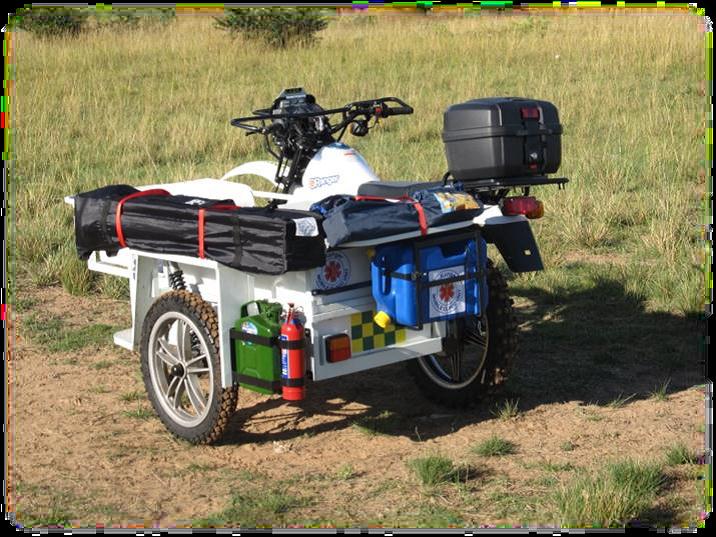
The mobile ambulances are also versatile and easy to operate. They are equipped with a rain cover, a roll cage and a stretcher that can carry a patient both in seated and lying positions, as need be
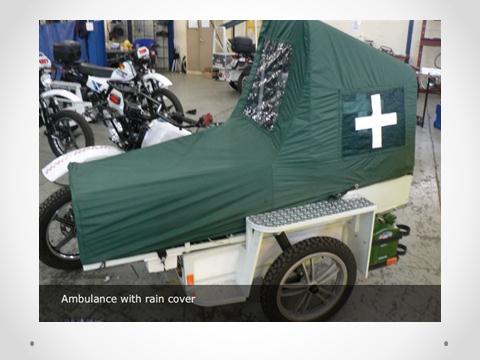
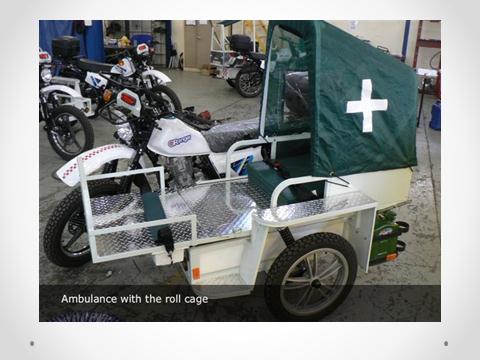
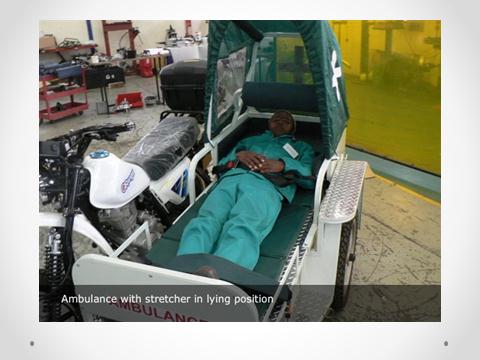
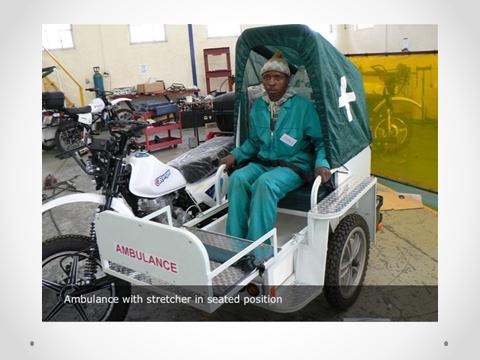
At the special meeting, Mr. Laakkonen and Dr. Alli set the foundation for UNFPA's mandate in Kenya and globally, citing that in Kenya, a woman dies every two hours while giving birth. At the same time, a new born loses its life every 20 minutes. Among those who survive, hundreds of mothers and newborns suffer severe injuries because they were not promptly attended to either due to poverty, lack of access and poor quality care. As a result, many women are unable to realize their full potential, are unable to support their families and hence continue to suffer in poverty.
Evidence shows that many of these complications could have been avoided if the women were provided with additional nutrition during pregnancy, and if they had received treatment from well-equipped and skilled health professionals.
Other causes leading to Kenya's high maternal mortality rate include:
- Long distance to health facilities
- Few and overworked health professionals
- Poor or no equipment, essential medicine and medical supplies
- Poverty
- Lack of adequate transportation to health facilities
- Lack of information and awareness on the importance of seeking timely care during pregnancy
- Cultural barriers and gender inequalities that obstruct women from seeking timely care
- Poor service at the delivery point
Mr. Laakkonen and Dr. Alli noted that by reducing these barriers, more women and children lives would be saved, which would lead to better health of all Kenyans and improved economic status. In order to achieve these goals, UNFPA has supported the Government and formed partnerships with civil society and the private sector to improve maternal health in Kenya. Some of the initiatives have included:
-
Renovating and equipping health centers and clinics around the country
-
Training staff in the health centers and clinics
-
Providing ambulances to four health facilities, thus upgrading them to Model Health Centers.
-
Build the capacity of eight (8) provincial hospitals to manage fistula, including those within refugee camps, thus enabling over 100,000 women refugees to access to essential maternal health services
-
Supported the government in the development of legislation, policy, strategies, protocol and standards in order to strengthen the reproductive health system
-
Developed curricula and training of community of about 120 midwives
-
Strengthened family planning (FP) commodity security through donations, distributions and introducing at rural level a FP commodity tracking system using mobile technology
-
Behavioral Change Campaigns and Life Skill training for youth to promote healthy life styles, gender equality and reproductive health care
Dr Alli proposed a partnership between UNFPA and Comcraft to enhance the provision of maternal and newborn health through the use of mobile health clinics and ambulances.
After critically perusing the proposal, Dr. Chandaria reacted positively to the idea of changing the plight of maternal health in Kenya and expressed his commitment to discuss the proposal with other partners and to also seek their support.

